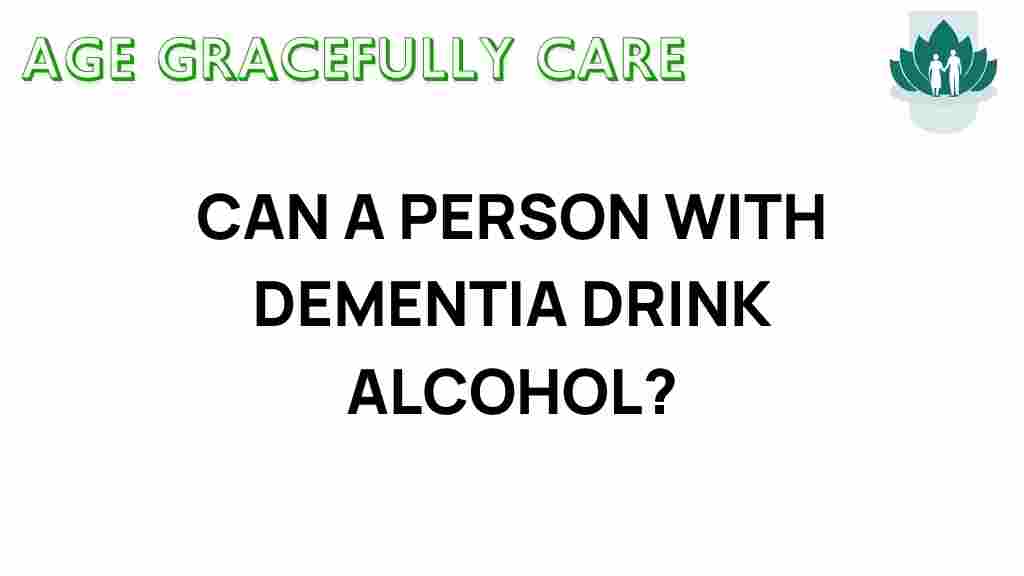The Complex Relationship Between Dementia and Alcohol Consumption
Dementia is a progressive neurological disorder that affects millions of people worldwide, leading to memory loss, cognitive decline, and a significant impact on daily living. As the global population ages, understanding the factors that influence dementia risk becomes increasingly important. One such factor is alcohol consumption, which has been a subject of extensive research concerning its effects on cognitive health and mental wellness. In this article, we will explore the intricate relationship between dementia and alcohol, examining how lifestyle choices, particularly during aging, can influence brain function and health risks associated with memory loss.
Understanding Dementia and Alcohol Consumption
Alcohol consumption is prevalent in many cultures, but its effects on health, especially concerning aging individuals, can be complex. While some studies suggest that moderate alcohol consumption may have protective effects against dementia, others indicate that excessive drinking can significantly increase the risk of developing cognitive disorders. This duality highlights the need to understand the nuances of alcohol’s impact on cognitive health.
How Alcohol Affects Brain Function
Alcohol can affect the brain in several ways, impacting its structure and function:
- Neurotransmitter Disruption: Alcohol alters the balance of neurotransmitters, which are essential for communication between brain cells.
- Brain Cell Damage: Chronic alcohol consumption can lead to neurodegeneration, affecting areas of the brain responsible for memory and learning.
- Inflammation: Alcohol can cause inflammation in the brain, which is linked to various cognitive disorders, including dementia.
The Connection Between Aging and Alcohol Consumption
Aging is a significant risk factor for dementia, and the relationship between aging, alcohol consumption, and cognitive health is critical to understand. As we age, our bodies metabolize alcohol differently, leading to increased vulnerability to its effects:
- Decreased Tolerance: Older adults may have a lower tolerance for alcohol, making them more susceptible to its negative effects.
- Interaction with Medications: Many older adults take medications that can interact negatively with alcohol, further increasing health risks.
- Increased Risk of Falls: Alcohol can impair coordination and judgment, leading to falls and injuries, which are particularly dangerous for the elderly.
The Impact of Lifestyle Choices on Cognitive Health
Making informed lifestyle choices is essential for maintaining cognitive health. Here are some lifestyle factors that can influence the risk of dementia:
- Diet: A balanced diet rich in antioxidants, vitamins, and healthy fats can support brain health.
- Physical Activity: Regular exercise has been linked to reduced risk of dementia and improved mental wellness.
- Social Engagement: Maintaining social connections can help reduce feelings of isolation and promote cognitive function.
- Alcohol Moderation: Limiting alcohol consumption to moderate levels can mitigate many health risks associated with aging.
Research Findings on Dementia and Alcohol
Numerous studies have explored the relationship between alcohol consumption and dementia. Here are some key findings:
- Moderate Drinking: Some research suggests that moderate alcohol consumption (about one drink per day) may be associated with a lower risk of Alzheimer’s disease.
- Heavy Drinking: Conversely, heavy and chronic alcohol consumption has been unequivocally linked to an increased risk of dementia.
- Type of Alcohol: The type of alcohol consumed may also play a role, with some studies indicating that red wine may have protective benefits due to its antioxidant properties.
Step-by-Step Process for Healthy Alcohol Consumption
If you choose to consume alcohol, here’s a step-by-step process to ensure that your choices support cognitive health:
- Assess Your Health: Consult with a healthcare professional about your current health status and any medications you are taking.
- Set Limits: Establish a personal limit for alcohol consumption, ideally no more than one drink per day for women and two drinks for men.
- Choose Wisely: Opt for drinks that may offer health benefits, such as red wine, while avoiding sugary cocktails or excessive spirits.
- Stay Hydrated: Drink water alongside alcoholic beverages to stay hydrated and reduce the effects of alcohol.
- Monitor Changes: Keep track of how alcohol affects your mood and cognitive function, and adjust your consumption accordingly.
Troubleshooting Tips for Alcohol-Related Concerns
If you find that alcohol is affecting your cognitive health, consider these troubleshooting tips:
- Seek Support: If you’re struggling to moderate your alcohol intake, consider speaking with a counselor or joining a support group.
- Explore Alternatives: Look for non-alcoholic beverages that can provide a similar social experience without the health risks.
- Focus on Wellness: Engage in activities that promote mental wellness, such as meditation, yoga, or cognitive training exercises.
- Communicate: Talk about your concerns with family and friends to create a supportive environment for making healthier choices.
Conclusion
The relationship between dementia and alcohol consumption is complex and multifaceted. While moderate alcohol intake may have some protective effects against cognitive decline, excessive consumption poses significant health risks, especially for aging individuals. Making informed lifestyle choices, including moderation in alcohol consumption, is crucial for maintaining cognitive health and overall mental wellness.
As we age, it is vital to prioritize brain function and memory retention by adopting a holistic approach to health that encompasses diet, physical activity, and social engagement. If you or someone you know is concerned about dementia, consider seeking professional advice and support to navigate these challenges effectively.
For more information on mental wellness and cognitive health, visit this resource.
To explore further studies on the connection between alcohol and brain health, check out this article.
This article is in the category Health and created by AgeGracefullyCare Team
